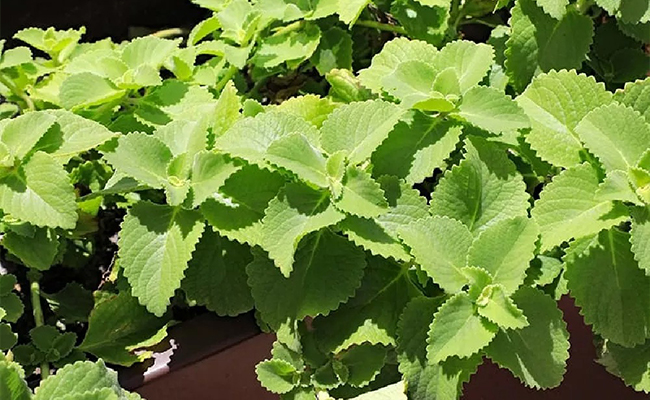Nature Power: Strengthen Your Health with These Herbs Plants
Organic is in trend for many good reasons. This makes us think that our ancestors only had a life full of organic, and they could stay healthy without advanced medicinal facilities because of the herbs. Nature has given us so much greenery, and herb plants are a part of it.
While we can have medicine for anything, consuming one is not always good. Go organic and get yourself treated with herb plants. We are sharing a list of herb plants for the kitchen which can be used in your daily food and can also be helpful in many health issues.

Origanum Majorana/Marwa
With a reach of up to 60 cm tall, Origanum Majorana is a dry dwarf shrub having whitish, oval, and grey leaves. This herb plant also produces flowers that are arranged in the form of a spike. This aromatic herb has several health benefits reducing inflammation, relieving digestive issues, and regulating the menstrual cycle.

Japanese Mint
First thing first, the Japanese Mint plant is also known as Mentha Arvensis. This perennial herb has highly aromatic leaves that look rough but are smooth to the touch. The rich flavour of Japanese Mint is the reason why the plant’s leaves are used in many dishes. Talking about health benefits, the herb plant is used to treat diarrhoea and dysentery, colds and infections, gallstones, liver problems, and irritable bowel syndrome (IBS).

Tulsi Plant
The Holy Basil is worshipped in India and is considered a sacred plant apart from being a herb. You can easily find Tulis leaves in many cuisines, and it is also used as a seasoning for salads. It is one of the easiest plants to grow, making it a go-to herb plant to be kept in your home. Tulis is a natural immunity booster, used to treat colds and coughs, helps beat stress, and is helpful for good dental and oral care.

Parsley Plant
Before going forward, knowing that Parsley plants require plenty of sunlight to grow and prosper a must. It is also a kind of foliage plant because its green stems are equally beneficial as its leaves. It is widely used to garnish dishes to add flavour to the food. Indian people stuff parsley in wheat balls to make Chapatis and Paranthas. Being a good source of Vitamin K, Parsley is good for bone health. It can also help reduce blood pressure and bloating.

Oregano Plant
Oregano is a must-have herb plant of Mediterranean cuisine. This is a popular choice for dishes because the leaves can be used both dry and fresh. The oregano plant is a member of the mint family, having leaves in cross-layers on the above. As per health benefits, it boosts the immune system and is a rich source of antioxidants.

Sabja Plant
This plant is also known as Sweet Basil, and Ociumum Basilicum is its scientific name. Having utmost relevance in Ayurveda and Chinese medicine, the Sabja plant is a great source of minerals. One can also consume this plant's seeds, which look similar to Seesam seeds. It helps in reducing blood sugar levels, diabetes management, weight loss, and constipation & acidity.

Lemon Balm Plant
Lemon Balm is considered a calming perennial herb from the mint family and is native to south-central Europe, the Mediterranean Basin, Iran, and Central Asia. The leaves of this plant are citrusy and scented and grow well in cold weather, meaning it needs to be kept indoors. It gets the name because of the lemon scent produced by the leaves. Reducing stress and anxiety, promoting sleep, and improving appetite are among the health benefits of Lemon Balm plants.

Thyme Plant
Thymus Vulgaris is a Mediterranean herb and a species of flowering plant in the mint family Lamiaceae. It needs to be placed in a warm, sunny spot as its flavour gets stronger with more sunlight. While tiny leaves and trailing stems are its beauty features, Thyme is a herbal plant useful in diarrhoea, stomach ache, arthritis, and sore throat with its flowers, leaves, and oil.

As you know about the herb plants that are good to keep in your home, get yourself one. And also gift plants online to your beloved ones for good health.















